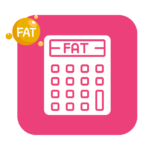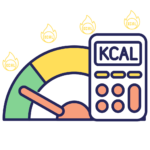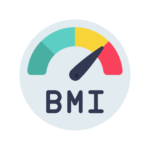Supplement Spotlight
Welcome to “Supplement Spotlight: Navigating the World of Weight Loss Aids”! With countless supplements claiming to offer quick and easy weight loss solutions, navigating the world of weight loss aids can be overwhelming and confusing. In this guide, we’ll shed light on some of the most popular weight loss supplements, explore their effectiveness and safety, and provide tips for making informed decisions about incorporating them into your wellness routine.
Understanding Weight Loss Supplements
Weight loss supplements come in various forms, including pills, powders, and teas, and often contain a combination of ingredients believed to support fat burning, metabolism, appetite suppression, or nutrient absorption. While some supplements may offer benefits when combined with a healthy diet and exercise regimen, others may be ineffective or even harmful.
Common Weight Loss Supplements
- Green Tea Extract: Green tea extract contains antioxidants called catechins, which are believed to boost metabolism and promote fat burning. Studies suggest that green tea extract may modestly aid in weight loss when combined with calorie restriction and regular exercise.
- Garcinia Cambogia: Garcinia cambogia is a tropical fruit extract often marketed as a weight loss aid due to its purported appetite-suppressing and fat-blocking properties. However, research on its effectiveness is mixed, with some studies showing minimal benefits and others showing no significant difference compared to a placebo.
- Conjugated Linoleic Acid (CLA): CLA is a type of fatty acid found in meat and dairy products and is commonly used in supplements for its potential to reduce body fat and increase lean muscle mass. While some studies suggest that CLA may have modest effects on weight loss, more research is needed to confirm its efficacy and safety.
- Caffeine: Caffeine is a stimulant found in many weight loss supplements due to its ability to increase energy expenditure and fat oxidation. While caffeine may offer temporary appetite suppression and metabolic boost, long-term use can lead to tolerance and potential side effects such as jitteriness, insomnia, and increased heart rate.
- Fiber Supplements: Fiber supplements, such as glucomannan and psyllium husk, are often promoted for their ability to promote feelings of fullness and reduce calorie intake. Adding fiber to your diet through whole foods is generally preferred over supplements, as it provides additional nutrients and supports digestive health.
Tips for Safe and Effective Use
- Consult with a healthcare professional before starting any new supplement regimen, especially if you have underlying health conditions or are taking medications.
- Choose supplements from reputable brands that undergo third-party testing for quality and purity.
- Be wary of supplements marketed with extravagant claims or promises of rapid weight loss, as these are often too good to be true.
- Remember that supplements are not a substitute for a healthy diet and regular exercise but may complement your weight loss efforts when used as part of a balanced lifestyle.
etches enhance flexibility and balance while calming the mind.
Conclusion
avigating the world of weight loss aids can be challenging, but with knowledge and discernment, you can make informed choices that support your health and wellness goals. Whether you choose to incorporate supplements into your routine or focus on natural methods of weight loss, remember that sustainable results come from a holistic approach that prioritizes healthy eating, physical activity, and self-care. Start your journey to a healthier you today, armed with the information you need to make empowered decisions about your well-being.












